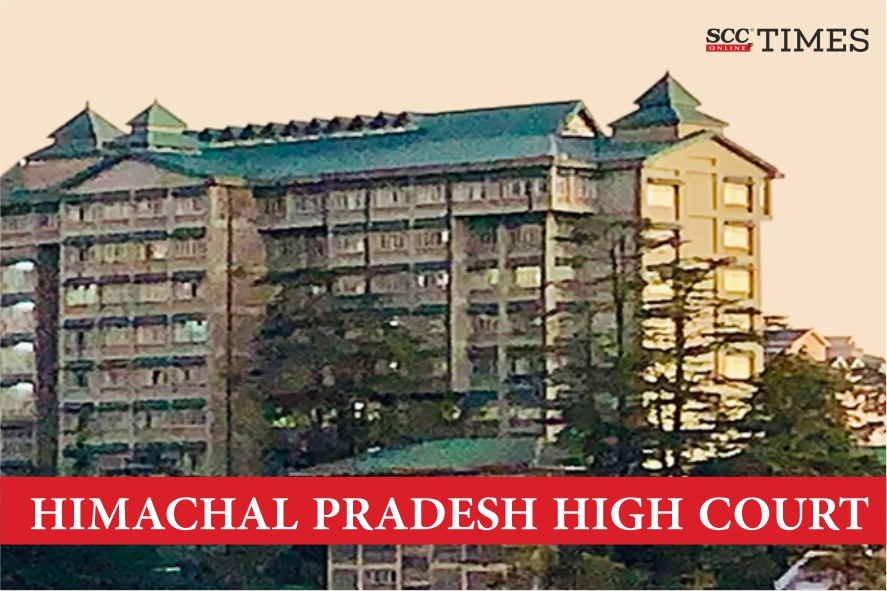Himachal Pradesh High Court: In an appeal filed against a composite order, whereby the Trial Court imposed penalty of Rs. 50,000 on the appellant and issued a recovery warrant against him under Section 421 of the Code of Criminal Procedure, 1973 (‘CrPC’), a Single Judge Bench of Virender Singh, J., allowed the appeal, holding that separate orders were required to be passed by the Trial Court as per Section 446 of the CrPC, firstly, at the time of cancellation of bail bonds and secondly, at the time of imposing penalty. In this case, the composite order deprived the appellant-surety of the opportunity to put forward his plea regarding non-production of the accused.
Background
The accusedwas arrested by the Police in connection with an FIR registered under Sections 354-A and 506 of the Penal Code, 1860 (‘IPC’), and Section 8 of the Protection of Children from Sexual Offences Act, 2012 (‘POCSO’). The accused filed a bail application before the Trial Court, wherein the Court granted his release on bail, during the pendency of the trial, subject to his furnishing personal bond of Rs. 50,000/ with one surety in the like amount.
In pursuance of the directions of the Trial Court, the appellant stood surety by giving a solemn undertaking to produce the accused before the Court on every date of hearing. However, the accused did not appear before the Trial Court. Efforts were made to secure his presence by issuing bailable warrants, but his presence could not be secured. Eventually vide the impugned order, the Trial Court initiated proceedings under Section 82 of the CrPC against the accused and imposed a penalty of Rs. 50,000 upon the appellant. Additionally, recovery warrants were issued to recover the said penalty amount from the appellant.
Aggrieved, the appellant filed the present appeal contending that the Trial Court passed the impugned order without giving sufficient opportunities to the appellant to explain the non-appearance.
Analysis and Decision
Upon bare perusal of Section 446 CrPC, the Court stated that it shows that the Legislature, in its wisdom, has provided civil and penal consequences in case of forfeiture of the bond. Once the orders passed in those proceedings culminated into civil and penal action against the person who has violated the solemn undertaking, then he/she must get a reasonable opportunity to contest those proceedings.
The Court stated that before forfeiting the surety bond, the Court was required to issue a show cause notice as per the decision in Ghulam Mehdi v. State of Rajasthan, 1959 SCC OnLine SC 148. In the aforementioned case, the Supreme Court held that Section 514(2) of the CrPC showed that before a surety becomes liable to pay the amount of the bond forfeited it is necessary to give notice why the amount should not be paid and if he fails to show sufficient cause only then can the Court proceed to recover the money.
Placing reliance on Ghulam Mehdi (supra), the Court noted that in the present case, the Trial Court issued notice to the appellant and the appellant appeared and sought time to produce the accused in the Court. Thereafter, on the next date when the accused and the appellant were not present, bailable warrants were issued to secure their presence. In pursuance of the said order, the appellant appeared before the Court and undertook to produce the accused before the Court. Thereafter, vide the impugned order, personal and surety bonds of the accused were cancelled and proceedings under Section 446 CrPC were initiated.
The Court stated that hearing of the affected party, i.e., the appellant, was mandatory, as not affording such opportunity of hearing would be a gross violation of the principle of natural justice. Even after forfeiting the surety bond to the State, the Trial Court failed to issue a show cause to the appellant as to why the amount of the bail bond should not be realized from him by way of penalty.
Thus, the Court held that separate orders were required to be passed by the Trial Court, firstly, at the time of cancellation of bail bonds and secondly, at the time of imposing the penalty. The legislature, in its wisdom, has used the words “if sufficient cause is not shown for imposing penalty”, then hearing the person affected by the said order is mandatory under Section 446 of the CrPC. In this case, the composite order was passed by the Trial Court, thereby depriving the appellant of the opportunity to put forward his plea regarding non-production of the accused.
Consequently, the Court held that the impugned composite order did not pass the judicial scrutiny, and the Court was left with no option but to set it aside and remand the matter back to the Trial Court for fresh adjudication under Section 446 of the CrPC.
Accordingly, the appeal was disposed of.
[Bihari Lal v. State of H.P., 2025 SCC OnLine HP 1666, decided on 09-05-2025]
Advocates who appeared in this case :
For the appellant: D.S. Kainthla
For the respondent: H.S. Rawat and Additional Advocate General Mohinder Zharaick





